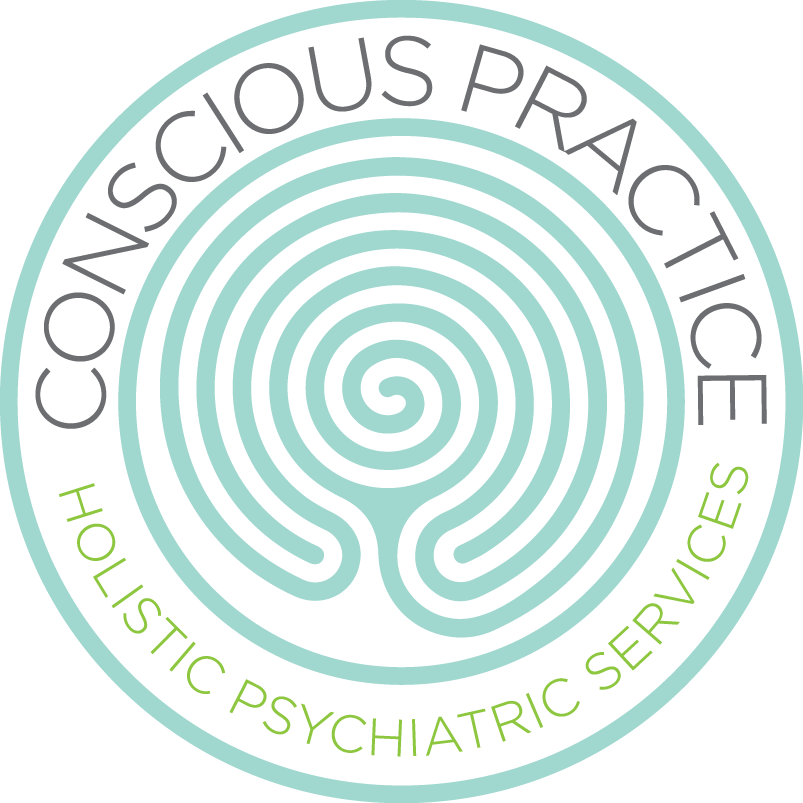Specializing in integrative psychiatry, holistic perinatal mental health, IFS-informed psychedelic therapy, and embodied trauma processing, by far the most frequently asked question I receive is: "Are you a doctor or a therapist or ????"
It is such an excellent question! I am not a medical doctor—I am an advanced practice nurse specializing in psychiatry and mental health. My license in Wisconsin is as an Advanced Practice Nurse Prescriber (APNP), and my national certification is Psychiatric-Mental Health Nurse Practitioner (PMHNP-BC). The “BC” indicates that I am “Board Certified,” which means I passed rigorous examination on psychiatry and mental health care and that I maintain all requirements to practice as a psychiatric mental health nurse practitioner. The most important requirement, in my opinion, is to independently continue my education to stay up-to-date on my skills and current developments in neuroscience, advanced practice nursing, and psychiatry. It lights me up to learn and grow as a healing professional, integrating modern and ancient ways of being, relating, and discovering with clients.
Psychiatric mental health nurse practitioners — or psych NPs — have a broad skillset to treat mental illness and support people working to improve their mental wellbeing, including the ability to prescribe medication and offer psychotherapy, among other tools as research uncovers more effective interventions and modalities. We have a long history of centering relationships, analyzing systems, offering humanizing healing approaches, and promoting empowerment through patient education.
For financial reasons, most healthcare institutions now relegate nurse practitioners and medical doctors as “prescribers,” so it is natural that clients may not be used to seeing a psychiatric provider who offers psychotherapy or other interventions. However, both psychiatric nurse practitioners and psychiatrists have therapy as part of our scope. In fact, in Western medicine, the first psychotherapists were physicians (19th century), and advanced practice nurses were originally psychotherapists (mid-20th century) coming from a tradition of holistic healing. We actually did not get prescriptive authority until 1995.
Every provider is different in our strengths and what training and education we choose to pursue after our required formal educations. If you are looking for a psychiatrically-trained practitioner who has therapy skills or uses other techniques beyond pharmaceuticals, look for providers who have pursued additional training or certification—or just ask them about their comfort with therapy and other healing modalities, if that is something that is important to you.
Most clients come to Conscious Practice seeking psychotherapy or alternative healing modalities, so this means many of the clients I work with may refer to me as “their therapist” — and that’s accurate! And also not the full scope of my expertise and what I offer — but that’s okay. PMHNP is a mouthful, and even psych NP does not readily roll off the tongue or feel intuitive to most people. When I worked in mainstream healthcare settings in the past, occasionally a client would refer to me as “their doctor,” which I was quick to correct them on as that is not my role or framework at all. After creating and sustaining an unconventional private practice that integrates diverse holistic interventions beyond the medicalized approach to mental health, there is no more confusion from clients. I take great care to ensure that I only accept clients who are an appropriate fit for the level of care that this practice provides. While some clients call me “their therapist” or “their provider,” I am unattached to any of these labels. Really, you can just call me Monica.
Though my credentials may be less familiar to people, I love being part of a new paradigm to bring advanced practice nursing in psychiatry back to its roots in holistic healing, with prescriptive authority as just one of the more modern skills we have to offer. As contemporary research deepens (and complicates!) our understanding of neuroscience, we are in a perfect position to digest and help translate research into knowledge our clients can relate to and integrate innovative treatments with traditional wisdom and ways of healing.

